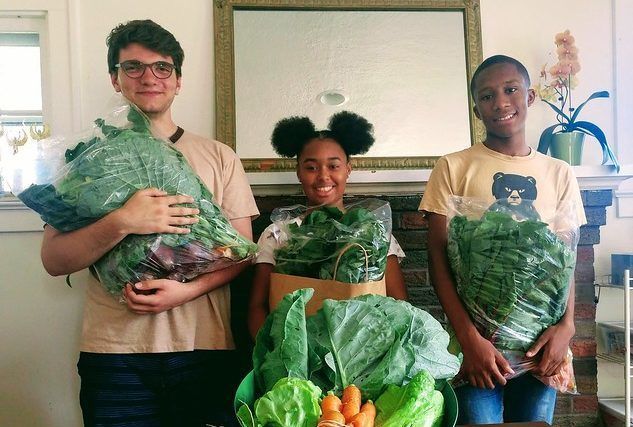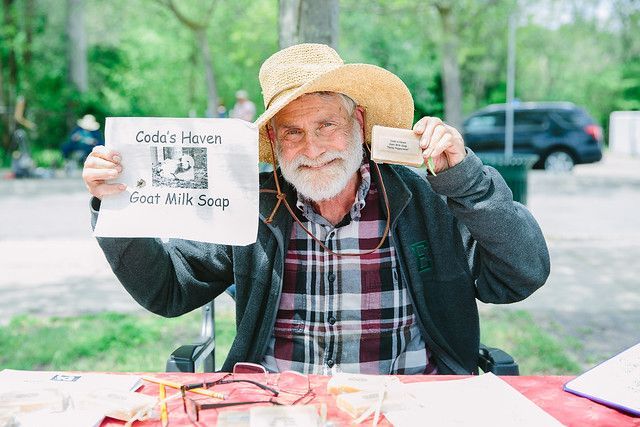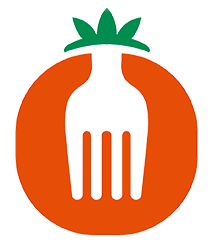Article
Creating a Space for Community
A Conversation with Farmers Market Manager Claire Austin
Some spaces are built for efficiency. Farmers markets are built for connection.
Claire Austin, the Ypsilanti Farmers Market Manager, knows this better than anyone.
"At the height of summer, I watched kids playing checkers on the pavement while their parents enjoyed ice cream from a local vendor. It was one of those moments where the whole market just felt easy—people were present, together, unhurried. That’s what makes this market special. It’s not just about food—it’s about creating a space where people can exist in community, stress-free."
But creating and maintaining a space like this takes effort. And as the market moves downtown to Washington Street this year, accessibility and sustainability are at the forefront of that work. I sat down with Claire to talk about what this transition means, why farmers markets are more than just places to shop, and how Friends of the Market can help ensure this space continues to thrive.
"A Space That Works for Everyone"
Julius Buzzard: Moving the market downtown is a big shift. What excites you most about this transition?
Claire Austin: Accessibility. At the old location, getting around with a stroller or wheelchair could be tough. This move makes the market more navigable for everyone—with better handicap-accessible parking and smoother pathways.
It’s also closer to more people. We have so many seniors who love the winter market, and now they’ll be within walking distance during the summer season too. And with the market being more visible downtown, I expect to see a lot more folks discovering it for the first time.
More Than a Transaction
JB: Farmers markets are often thought of as shopping spaces, but they’re so much more than that. What do you think makes the Ypsilanti Farmers Market different?
CA:
It’s about relationships. You’re not just picking up produce—you’re meeting the people who grew it, who know the story behind every tomato and head of lettuce.
It’s also a place where people can just be. You don’t have to spend money to feel welcome here. I love seeing folks who come just to chat with vendors, build friendships, and be part of something bigger than themselves.
Food Access as a Core Mission
JB: Food assistance programs are a big part of this market. Why is that such a priority?
CA:
It’s in our mission statement: to increase food access.
We accept SNAP, WIC, Senior Project Fresh, Prescription for Health, and Double Up Food Bucks—because fresh, local food should be for everyone. And the best part? Your money goes further at the farmers market. When food prices are unpredictable, shopping local gives people more consistent access to affordable, high-quality food.
Why Friends of the Market Matter
JB: For someone who’s been to the market but never thought about becoming a Friend of the Market, what would you say?
CA: Keeping this market running takes real resources. It’s like supporting a local library or community center. You might not think about what it takes to sustain it, but without support, it can’t grow—or even exist.
When you become a
Friend of the Market, you help:
✔ Keep vendor fees low, so small farmers can continue doing this work
✔ Expand food assistance programs, making fresh food accessible for all
✔ Maintain a safe, welcoming space where our community can gather
"I want this market to still be here for generations to come. That only happens if people step up to support it."
Join Us in Growing This Market
This season, the market is evolving—a new location, new opportunities, and a growing community.
📍
NEW LOCATION: 16 S. Washington Street
🛍️ Opening Day: May 3, 2025 | ⏰ 9 AM – 1 PM
💛 Want to help keep this space thriving? Become a Friend of the Market today. Your support keeps this market accessible, equitable, and deeply rooted in Ypsilanti.
share this
Related Articles
Related Articles
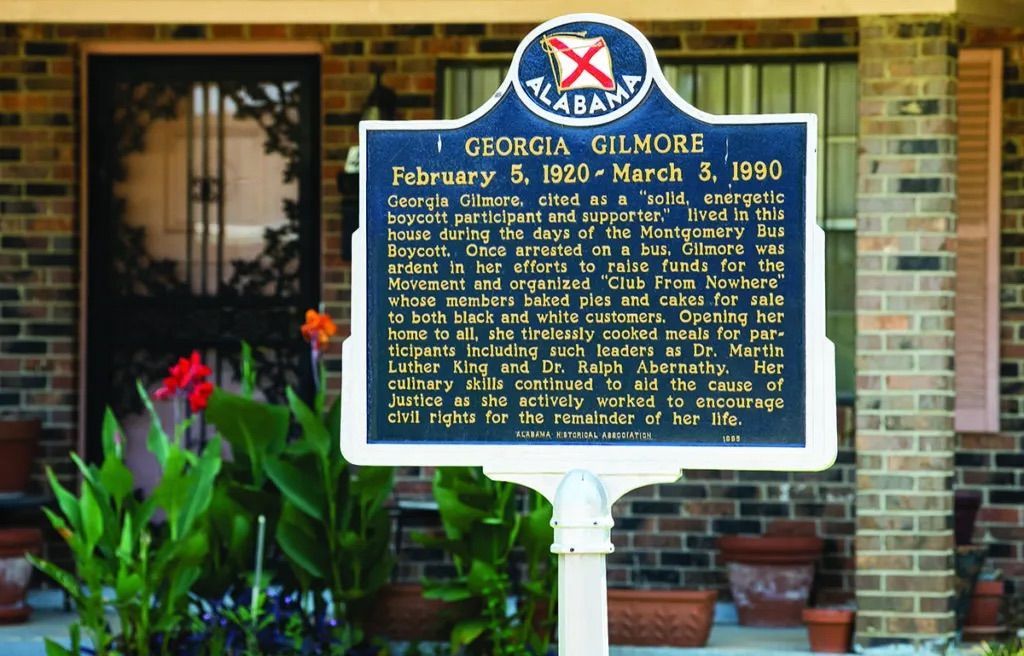

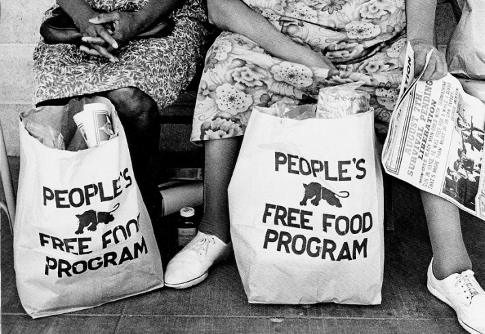
STAY UP TO DATE
GET PATH'S LATEST
Receive bi-weekly updates from the church, and get a heads up on upcoming events.
Contact Us


